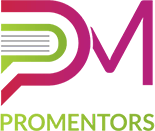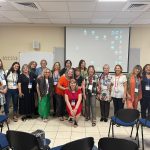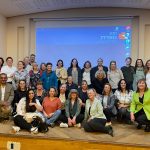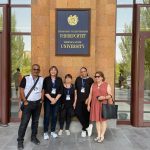Improving the quality of teacher-training in Israel through an efficient and sustainable mentoring system based on best EU practices.
Israeli higher education institutions that are involved in training teachers are aware of the growing demand to adjust the mentors’ training courses to the professional needs of the schools where they teach. In this context, each PROMENTORS’ Israeli institution identified the special needs of its mentors and some of them have already started to pre-pilot new directions to train the mentors in their institutions.
In Israel, there are separate public education systems which enable the different ethnic groups to teach in their first language (Hebrew or Arabic) or relate to the special requirements of their specific community (religious or secular). In the process of training new teachers and training mentors of new teachers, the specific needs of the different target populations need to be taken into consideration and are slightly different in each sector. PROMENTORS’ consortium represents different institutions within these 3 trends (Jewish Religious, Jewish Secular and Arab).
Although there are differences within the existing target groups of PROMENTOR’s program, some predominant common characteristics of mentors’ needs within the different HEI’s can be already identified. The first and most significant is the need to focus on the interactions between the mentors and their mentees, seeing the mentoring process as a source of professional growth for both. Mentoring is seen not only as coaching the novices towards better performance in school but also as a source of mutual engagement and reciprocity for improving education. To this end, all the Israeli HEIs participating in this project take an ecological view of the training process by focusing on mentors work within the school and the local community. The underlying assumption is that all players in the mentoring process strongly need to refer to the specific contextual needs that characterize their local communities in school and in their neighborhoods. When referring to the needs, we relate to the needs of all stakeholders that take part in the mentoring process (mentors, mentees, policy makers, school principals and staff). The need to create a community of learners to serve as a proper arena for training the mentors is emphasized by all the Israeli teaching colleges and universities that are consortium members.
Due to the need to create this community, the aim is to facilitate the mentoring course and training to occur in the schools and/or their local communities (municipality, towns, villages, etc.). To this end, the teaching and pedagogical mentoring staff from the Israeli institutions need to physically shift their work to schools and begin to play a more engaged role of coaching and guiding the mentors’ work within the scope of their community. This contextual shift is from the pedagogical advisor individually coaching their mentees (either at the institution or in the schools) towards a more communal, innovative approach that includes all relevant players in an ongoing processes of dialogue, sharing and communicating. This shift is considered central and crucial in the way in which Israeli institutions’ mentors train their mentees.
This project is built on and can be seen as a continuation of a previous ERASMUS+ project called PROTEACH. In the PROTEACH project, the Israeli institutions participating in the project developed the MIT (Multiplayer Induction Teams) model for amplifying beginning teachers’ voices during their induction period to sustain teachers’ retention in their first years at school. The model is based on a partnership between the academic teacher-training colleges and departments in universities, the schools and related policy makers (from the municipalities and the Ministry of Education).This group meets once a month in the schools to discuss pedagogical and managerial issues that arise in the new or beginning teachers’ work and try to solve them together. During this process, beginning teachers introduce new ideas that can lead to new initiatives that enrich their work at school, as well as the school itself. At the same time, beginning teachers get the support they need for better integration and performance at school.
The MIT has been viewed as a community of practice (Lev & Wenger 1991 ) where participants from schools, academia and policy makers share a common goal of improving the schools’ absorption culture and enhance beginning teachers’ professional skills, supported by mentors and mentoring approach. The MIT model has been proven to be highly successful for teachers’ retention in the schools participating in the pilots, as well as its impact on the partnership between schools, colleges and universities during induction. Moreover, the MIT model influenced higher educational institutions to expand their intervention in schools and strength their contacts with the schools’ staff and policies.
During the successful teamwork of the MITs, the lack of mentors’ engagement within the group was obvious, having their work occur in parallel to the work done in the MIT. In PROMENTORS, the aim is to expand and enhance the MIT model with the mentors, by addressing the mentors’ role as well as the concept of mentoring in education, in general. This approach fits the current policy of the Israeli Ministry of Education which emphasizes the importance of sustaining and strengthening the mentors’ role in schools with the active support of the teachers’ educational academic institutes.
One of the main challenges of the mentors’ training in Israel is the lack of participation of the mentors within the existing framework. This is because the current training is not in line with the mentors’ real needs of dealing with their own professional development. The Ministry of Education in Israel needs to take a proactive step with restructuring mentors’ training and its professional development. The Ministry of Education is striving to build new professional development opportunities for mentors outside the school which coincide with the academic institutions of higher education for teachers’ training understanding the importance of embedding the mentors’ professional development in schools.
The PROMENTORS project aims to expand the successful MIT model as a basis for a new model of mentors’ training implemented by academic teacher-training institutions and departments in Israel. In the new model, we will strengthen the MIT structure and include accredited courses at the B.Ed. level, as well as at the M.Ed. level. Mentors, beginning teachers, pedagogical advisors, and accompanying teachers, together with the school staff, will work together for maintaining mentors’ professional development. To reach these goals, PROMENTORS will study new models that take place in EU higher educational institutions in order to model their good practices and enrich the Israeli models that will be developed.
To achieve these goals, the project will:
1) Develop and refine, via pilot implementation and evaluation, an efficient and sustainable mentoring system in Israel and implement it within training courses in the Israeli HEIs.
2) Train 360 mentors in the new MIT courses.
3) Facilitate 3 international mobilities and train-the trainers’ scheme for implementation of the mentoring system in Israel.
4) Provide a certification system for the mentoring system in Israel as a label of quality through PGM teachers’ peer group mentoring.
5) Disseminate the learning process of MIT developed within PROMENTOR partner institutions to other Israeli HEIs.
6) Ensure communication and sharing with the use of ICT.






